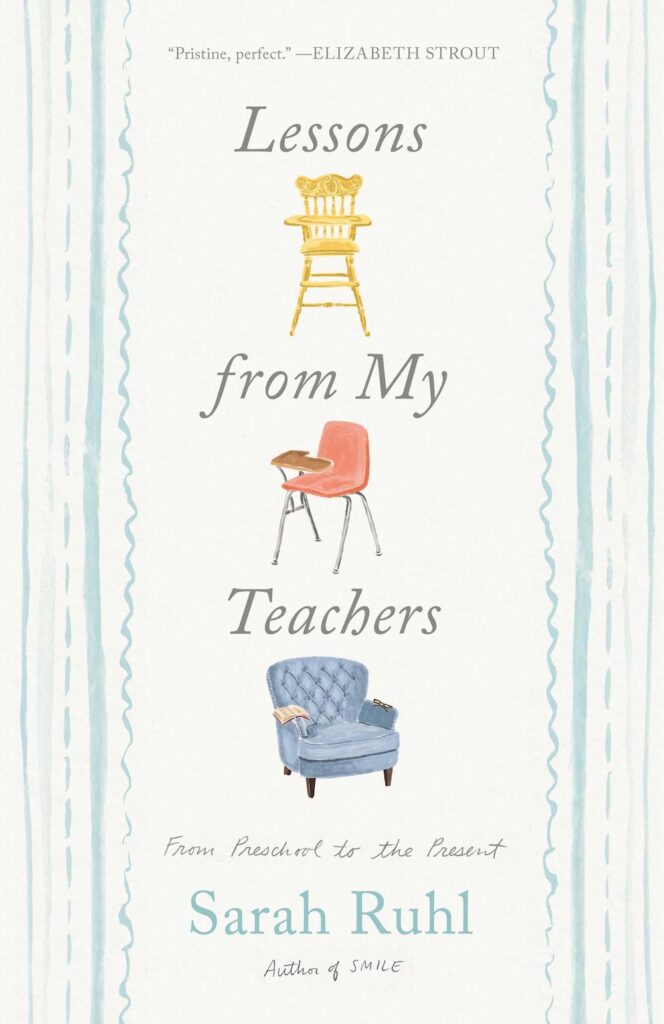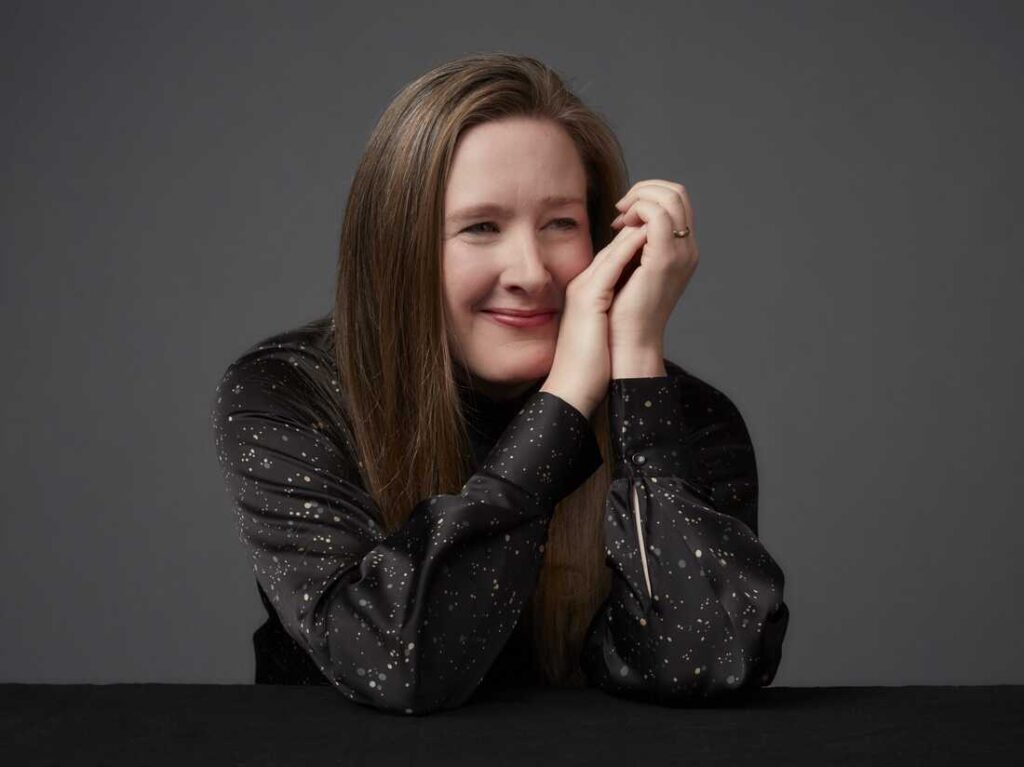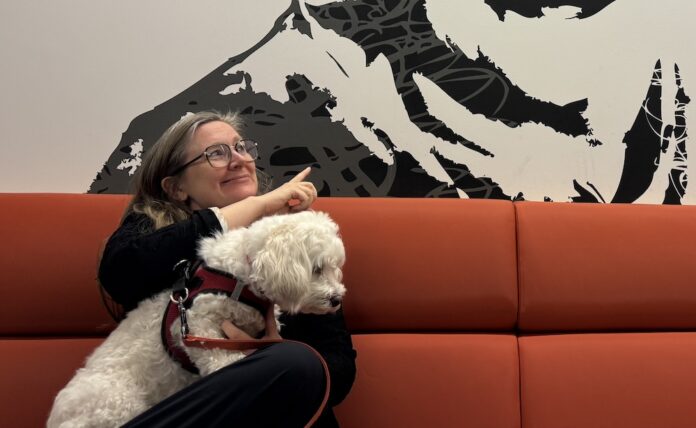On May 6 and with impeccable timing, dry humor, and under-the-table profundity, playwright and author Sarah Ruhl released her latest book Lessons from My Teachers (Simon & Schuster/Marysue Rucci Books, $28.99). The collection of short essays describes decades of learning courtesy of family members, classroom instructors, colleagues, and professional role models. But Ruhl also writes of unexpected mentorship found in cranky neighbors, a headless gerbil, two bookstore owners, luck, bleeding, writer’s block, big questions, solitude, a felafel maker, and more.
Lessons is a perfect end-of-academic-term gift for anyone else deserving of thanks for the indelible mark they’ve left on your life.
Ruhl is a two-time Pulitzer Prize finalist, Tony Award nominee, MacArthur Genius, and writer of 15 plays, among them Eurydice, a reimagined version of Greek mythology, The Clean House, and In the Next Room (or the Vibrator Play). In her 2014 book, 100 Essays I Don’t Have Time to Write, she reflects on balancing (or not) her life as a creative artist, mother, and wife. In 2021, Ruhl delivered Smile, a memoir chronicling her slow recovery after surviving a high-risk twins pregnancy, only to be struck with Bell’s palsy, which paralyzed the left side of her face.

The writer herself is an educator. At the Yale School of Drama, she leads a sought-after playwriting course, “Lessons From My Teacher.” The class unravels the idea that playwrights appear by magic, as if “sprinting from the head of Zeus,” revealing them instead as the result of dynamic teaching, empathetic affiliations, and connective relationships.
One of the most poignant essays of the book version of Lessons tells of when 20-year-old Ruhl, struggling with her father’s recent death, met playwright Paula Vogel. At the time, Ruhl was battling to write or read anything at all. Vogel suggested they meet at Café Zog, bought her a cookie, and with some sage advice and even more sheer presence, helped Ruhl to shift her literary focus away from pain to write about joy.
Vogel also appears in the essay “Gifts.” Upon finishing her graduate writing program, Ruhl was depleted and ill with a kidney infection. Vogel pushed her to go to a doctor. Ruhl refused, explaining she had no health insurance. Later, Vogel pushed a check for $500 under Ruhl’s door, turning down repayment and explaining she herself had once been gifted $500 when her partner suffered health concerns at a time when they had no insurance. That giver told Vogel to pass a similar gift forward to another artist in need. The gift cycles perpetually, a daisychain of mutual care.
In “The Perfect Bookstore,” readers learn of the Wilmette Bookstore, a tiny shop Ruhl adored as a child, and that was owned by two women named Barbara and Joan. It was there that Ruhl learned the joy of “being known” by proprietors who always knew the exact book she would find interesting to read. Quiet hours spent wandering the store’s shelves heightened her appreciate for simple browsing. After the pandemic and its first torturous, no-browsing year, Ruhl recalls weeping in another shop’s children’s book section over the “sheer relief at being among physical books again.”

Lessons is no pedantic performance of a curriculum, nor manifesto with a hidden agenda, other than to describe the endless opportunities life provides for discovery and revelation. If there are occasional essays that seem to reach too far, travel across a thin bridge of topicality, or make a mountain out of a tiny molehill of insight, a reader’s reactions perhaps only serve Ruhl’s larger point: Something can be learned from almost anything.
Ruhl is a practicing Buddhist who believes firmly in science and the value of psychotherapy. Her therapist, who shares her faith, tells her in the book’s pages a charming story of a joke overheard at a conference. Someone asked, “What do Buddhism and psychoanalysis have in common?” The answer, “neither of them works.” The relayed quip caused Ruhl to ask, “So, if nothing really works in the end, what is the goal?” Her therapist answered, “Lightness, lightness.”
With her skilled wit and humor, Ruhl provides in Lessons all manner of lightness. The collection arrives on the precipice of summer, which as previously mentioned is a fine time for gifting its slim volume to teachers and mentors, or as inspiration for graduates, retirees, aspiring or accomplished writers, lifetime learners, and so on.
Buy Lessons From My Teachers here.





